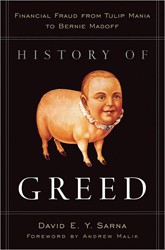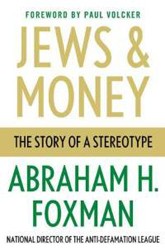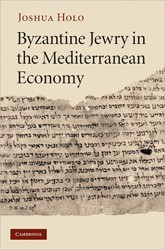Two renowned social scientists illustrate the concept of social capital with salient features of Jewish communal life. In Bowling Alone, Robert Putnam points out that the mitzvah of mishloach manot, the custom of exchanging food and delicacies on Purim, promotes social connectedness and animates philanthropy and volunteerism. James Coleman describes how three components of social capital — trust, norms and networks — are critical in diamond markets. Like these two scholars, articles in this anthology explain how and why Jews deploy social capital to survive and sometimes achieve prominence and economic success despite anti-Semitism, legal restrictions and persecution.
Rebecca Kobrin and Adam Teller have made an important contribution to the broad subject of Jews and money especially their role in the evolution of modern capitalism and the global economy since 1500. Purchasing Power includes a series of essays that address the ways that Jews engaged with economic life in various contexts and at different times. Their strong communal ties and extensive transnational networks enabled them to exercise agency and adapt to the constraints and the opportunities they faced. Unlike most edited volumes, which focus on one or two themes, this book is especially remarkable because the individual articles develop two themes in a sequential fashion. The book begins with a discussion of moneylending in Rome at a time when modern capitalism was in its infancy in the sixteenth century, and includes a series of articles that bring us nearly to the present.
Scholarly discussions of the role of Jews in the emergence of modern capitalism date back to the late nineteenth century when “scholars tended to argue for an inherent propensity — religious, cultural, or even racial — on the part of Jews for capitalist activity.” This work had important political ramifications: it fueled the fires of anti-Semitism. Adam Sutcliffe observes in the final chapter that “The association of Jews with commercial and financial power has long been a stock trope of anti-Semitic stereotyping… The depiction of the Jews as parasitical capitalists featured prominently in the prelude to their genocide, and the field of Jewish economic history remains haunted by this fact.” This “haunting” meant that the economic role of Jews was subordinated to discussions of religion and culture for most of the twentieth century. But recent scholarship on Jews and money has shed important light on Jewish communities, the evolution of capitalism, and the nature of globalization. In their Introduction, Kobrin and Teller analyze past scholarship and trace the “economic turn” in Jewish studies in order to situate the book in contemporary scholarship.
Two concepts unify the collection: networks and power. Articles in Part I, “Networks and Niches,” describe the ways that local and transnational social networks promoted economic survival and success. Two examples are especially notable. Carsten Wilke’s “Contraband for the Catholic King: Jews of the French Pyrenees in the Tobacco Trade and Spanish State Finance” analyzes a unique situation: the monopoly on the sale of tobacco in Spain by crypto-Jews. Some tobacco merchants were transnational commuters: their families lived openly as Jews in France while they transvered the Pyrenees to conduct their business in Spain. The open secret of their Jewish identity did not guarantee protection from the Inquisition, but their pivotal role in state revenue — taxes on tobacco comprised nearly a quarter of the Spanish government’s income in the beginning of the eighteenth century — reduced the chances of prosecution. Adam Mendelson’s article, “From Moses to Moses: Jews, Clothing and Colonial Commerce” describes how Jewish clothing merchants and manufacturers benefitted from the expansion of the British Empire creating a highly integrated multi-continent family business manufacturing and selling clothing. Sons, nephews and brothers were sent abroad to promote business expansion and in this way, tap the trust and strong ties within families to promote global business enterprises. This case study suggests that the Rothschild family’s strategy of sending sons to different cities was not unique.
Part II provides vivid evidence of how Jewish philanthropy served as an instrument of global power and influence. The case studies consider the evolution of global advocacy networks and organizations, what Abigail Green labels the “Jewish International,” between 1840 and 1880; financing the 1948 Israeli War of independence through formal organizations and informal donor networks; the transplantation and revitalization of the community of diamond dealers in Antwerp during and after World War II; and the transnational activism which led to the mass migration of Soviet Jews.
The last article brings the discussion full circle with an analysis of Werner Sombart’s The Jews and Capitalism. While the fact of high earnings and the economic centrality of Jews is not as fraught as in the past (although the anti-Semitism it evokes is far from absent), the scholarly study of the role of Jews in the development of capitalism has become more nuanced drawing on recently developed concepts like agency, social capital and transnational social networks. In contrast to his contemporary, Max Weber whose Protestant Ethic and the Spirit of Capitalism is central to the sociological canon, Sombart’s work has not been influential. His essentialism and tacit support of Nazism in his final years cast doubt on his objectivity. Adam Sutcliffe contextualizes Sombart’s work noting that it was influenced by prevailing racialist theories and relied on the findings of German Jewish scholars. Recognizing the methodological and theoretical limitations of Sombart’s work, Sutcliffe suggests that the complex questions Sombart addressed merit serious examination since they illuminate our understanding of the role of Jews in the evolution of capitalism. Moving beyond Sombart, the scholars in this volume tackle important questions and, like other recent scholarship, have made major contributions to a lively debate about the evolution of the global economy.
Related Content:





